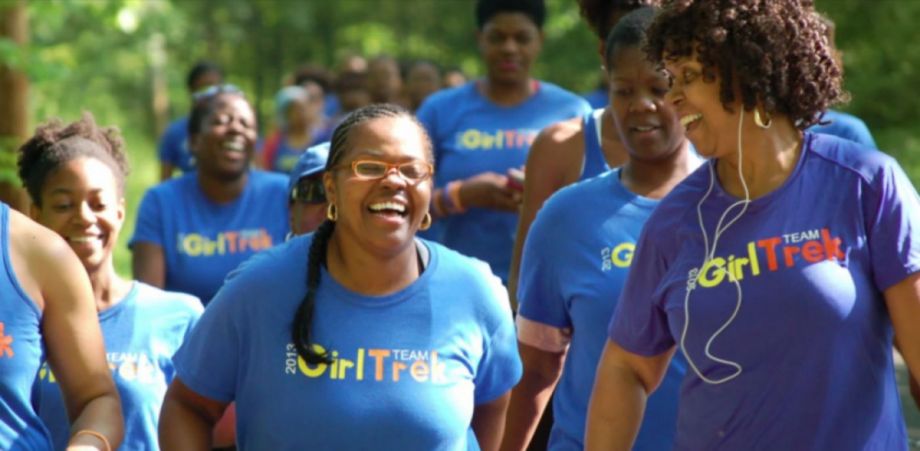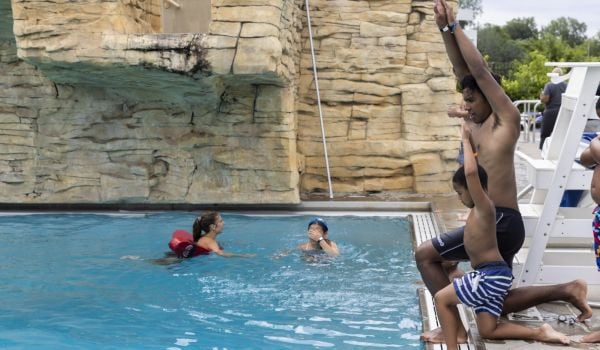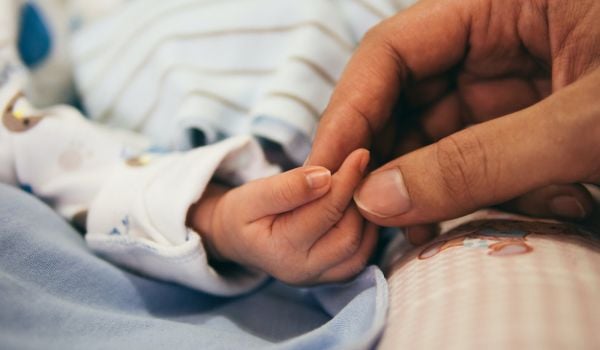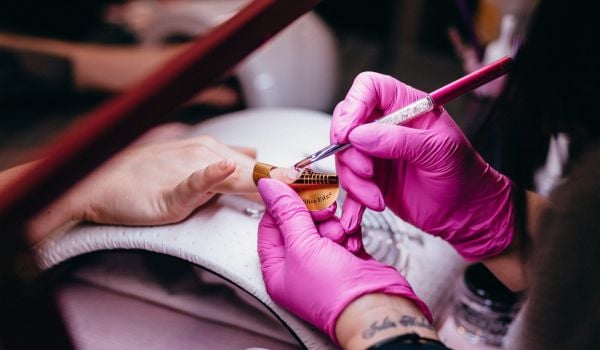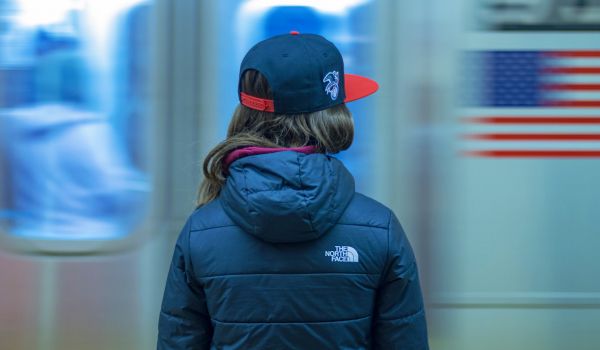Read the stats about the health of American black women and things look bleak, but look at people, not just numbers, and another picture emerges — specifically the women at GirlTrek, which is trying to change health outcomes with a simple intervention: walking. The three-year-old nonprofit with chapters in cities including Detroit, Atlanta, St. Louis and Washington, D.C., encourages black women to improve their health starting with weekly group walks and moving to 30 minutes of walking per day, five days a week. Over 50,000 women have signed the pledge; GirlTrek is aiming for 1 million by 2018.
Promoting walking as both exercise and a mode of community connection, the organizers link their mission to the marches of the civil rights movement and the freedom-by-foot power of the Underground Railroad. Last year, 500 GirlTrek members traveled to Selma, Alabama, on the 50th anniversary of the bloody march for voting rights there.
This week, GirlTrek is holding its first “national celebration of self-care” to honor Harriet Tubman Day and the power of women walking, and unveiling a new video (watch below) about the barriers to exercise that black women face.
Chapters in cities around the country are organizing sunrise walks, screening the short doc at “Harriet House Parties,” and spreading the word through the hashtag #WeAreHarriet.
Help us support @GirlTrek’s #WeAreHarriet: A National Conversation on Self-Care and #BlackGirlHealing tonight 8ET. pic.twitter.com/LELeBjTNfL
— Play Like A Girl! (@iplaylikeagirl) March 10, 2016
Boston’s first #WeAreHarriet gathering was a huge success! On Saturday we trek! @GirlTrek #BlackGirlHealing pic.twitter.com/p1kjwlr3Ma
— M.D. Fernandes (@MindfullyMaria) March 10, 2016
Even in my office, the #GirlTrek Sisterhood is with me. #BlackGirlHealing #WeAreHarriet #GetFree pic.twitter.com/eU3yqJuQmQ
— Theresa S. Thames (@TsThames) March 10, 2016
“[Harriet Tubman] took control of her own destiny and GirlTrek is asking Black women and girls to do the same to join a walking movement to live healthier, longer lives in the name of our ancestor,” said Vanessa Garrison, GirlTrek co-founder, in a statement. “Harriet Tubman was bold enough to believe she could be free and brave enough to walk to freedom. If she could walk with the slave catchers after her, we have no excuse for not getting up to literally walk to good health.”
Despite walking’s long history among black Americans as an instrument for securing rights, freedom and self-determination, many face stark safety issues today. Black pedestrians are 60 percent more likely than white ones to be killed by cars while walking in the U.S. The disparity is due in part to unequal infrastructure. Low-income neighborhoods are less likely to have adequate sidewalks, crosswalks, lighting or traffic-calming measures. And as black Americans are more likely than white Americans to live in concentrated poverty, the issue impacts black pedestrians disproportionately. Further, a 2014 Portland State University study of crosswalks in downtown Portland found that motorists yielded more frequently to white walkers than black walkers.“What happens when a million women are walking in the highest need, highest crime neighborhoods in America?” asks Morgan Dixon, co-founder of GirlTrek, in the video. “They become the changemakers, they become agents of just such powerful innovation. They notice blight in their community and they start to talk and figure out how to fix it together.”
Because as women walk for self-care, they walk through their communities. They meet neighbors face to face, reclaim their right to streets that may feel unsafe, and see aspects of their neighborhood they can’t by car.
Their very visibility and advocacy could effect infrastructure improvements — which will get even more people on their feet and walking.
Jen Kinney is a freelance writer and documentary photographer. Her work has also appeared in Philadelphia Magazine, High Country News online, and the Anchorage Press. She is currently a student of radio production at the Salt Institute of Documentary Studies. See her work at jakinney.com.
Follow Jen .(JavaScript must be enabled to view this email address)

